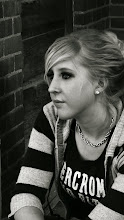I highly recommend reading Where Are You Going, Where Have You Been? by Joyce Carol Oates. It is an extremely interesting, well told story that I very much enjoyed. However, if you find you don't have enough time to read the full story here are some basic points and summaries over the story from Bookrags.com
Themes
The tale of an insecure, romantic teenage girl drawn into a situation of foreboding violence, "Where Are You Going, Where Have You Been?" presents several themes that arise from the interaction of sharply drawn characters engaged in psychological manipulation.
Appearances and Reality
Connie prides herself as a skilled flirt who has never been in a situation she could not handle. She feels confident when Arnold Friend arrives at her door while she is alone in the house: "Who the hell do you think you are?" she asks. Mistaking him for the type of boy she frequently attracts, she thinks she recognizes him from the sound of his car's horn, his clothing and physical appearance, and the line of banter with which he attempts to lure her into his car.
Style
Point of View
The first line of "Where Are You Going, Where Have You Been? "-"Her name was Connie" - signals that it is being told by a third person narrator. This narrative voice stays closely aligned to Connie's point of view. The reader learns what her thoughts are, but the narrator provides no additional information or judgment of the situation. For instance, Connie's harsh appraisals of her sister and mother are discussed: "now [her mother's] looks were gone and that was why she was always after Connie," but it is clear that this assessment is Connie's and not the narrator's.
Observing the story's events through a narrator who presents things as Connie sees them allows the reader to identify with her terror as she is transformed from a flirt into a victim.
Critical Overview
Oates's novel about urban life and murder, them, had won the 1970 National Book Award, so It was no surprise that her next collection of short stones, The Wheel of Love, which appeared later that year, received much attention. The book was widely reviewed, and "Where Are You Going, Where Have You Been?" was often identified as one of its greatest successes. Some critics were disturbed by the violence that marked the entire collection-a common criticism leveled against many of Oates's works-and by the extreme situations and emotions experienced by a central character in nearly every story. "Joyce Carol Oates," Robert Emmet Long wrote in Saturday Review, "is not really interested in people, only in mental states." Others recognized that disturbing readers was precisely Oates's aim.







